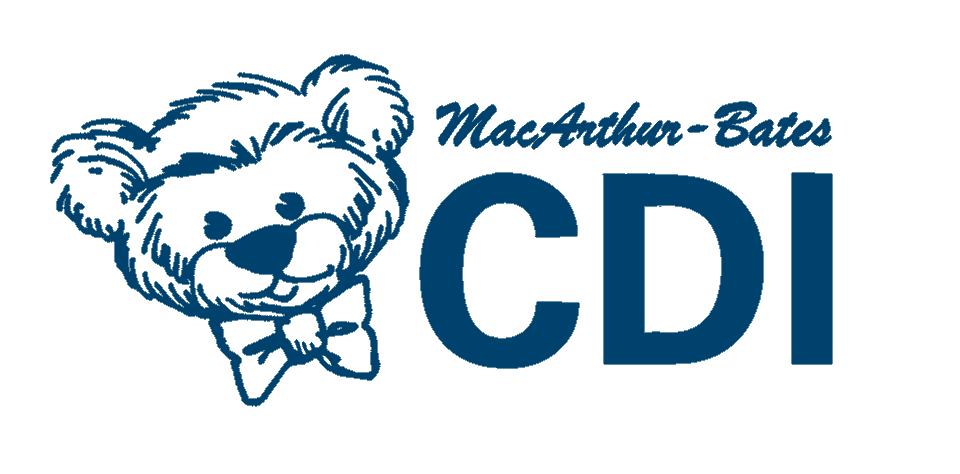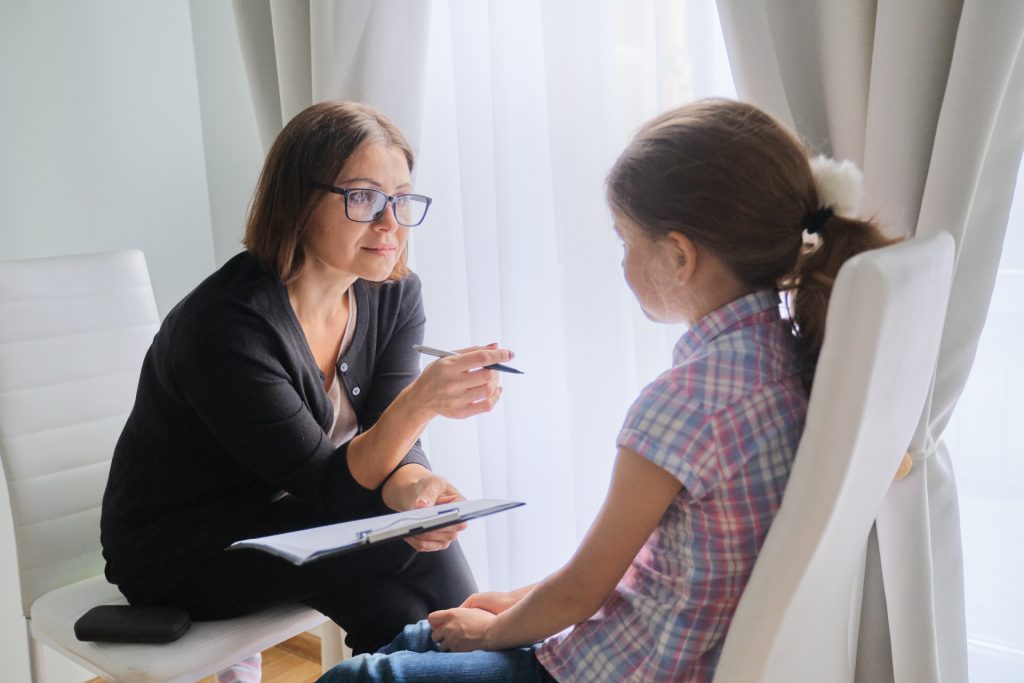MULTILADA
CDI
Hva er CDI?
MacArthur-Bates Communicative Development Inventories (CDI) er et foreldrekartleggingsverktøy utviklet for å kartlegge språkutviklingen hos barn opptil fire år. Disse verktøyene er mye brukt internasjonalt både til forskning og diagnostiske formål. Foreldrene får i oppgave å krysse av ord (i en liste) som barnet bruker.
Slike foreldreskjemaer er svært praktiske, da de unngår utfordringer knyttet til direkte testing av små barn (som det å etablere kontakt med en fremmed eller opprettholde oppmerksomhet). I tillegg er skjemaene elektroniske og fylles ut på nettet. Det finnes flere versjoner av skjemaet tilpasset barn i ulike aldersgrupper:
- CDI Words and Gestures (polsk tilpasning: Inwentarz Rozwoju Mowy i Komunikacji: Słowa i Gesty, IRMIK SIG), for barn i alderen 8–18 måneder. Dette skjemaet inneholder en ordliste (gruppert i semantiske kategorier, som dyr, kjøretøy, og kroppsdeler), gester og aktiviteter som er spesifikke for små barn. Foreldrenes oppgave er å krysse av for gestene og aktivitetene barnet utfører, samt ordene barnet forstår og/eller bruker. Skjemaet inkluderer også spørsmål, for eksempel om barnets første tegn på forståelse, forståelse av foreldrenes ytringer, tendensen til å si hva ting heter, å gjenta ord og fraser som barnet har hørt, osv.
- CDI Words and Sentences (polsk tilpasning: Inwentarz Rozwoju Mowy i Komunikacji: Słowa i Zdania, IRMIK SIZ), for barn i alderen 18–30 måneder. Dette skjemaet inneholder en lignende (men lengre) ordliste og spørsmål om grammatisk utvikling, for eksempel hvorvidt barnet setter sammen ord. Hvis ja, blir foreldrene bedt om å skrive ned de tre lengste ytringene de nylig har hørt fra barnet. De polske tilpasningene, IRMIK SIG og SIZ, ble standardisert på et landsrepresentativt utvalg av 1 200 (SIG) og 2 400 (SIZ) foreldre. Dette gjorde det mulig å bekrefte testenes reliabilitet og validitet, og å utvikle normer for polsktalende enspråklige barn. Standardiseringsstudien ble gjennomført ved Instytut Badań Edukacyjnych av et team ledet av prof. Magdalena Smoczyńska sammen med forskere fra MultiLADA: prof. Ewa Haman, dr. Grzegorz Krajewski og dr. Magdalena Łuniewska.
- CDI-III er beregnet på barn i alderen 30–36 måneder. Den polske tilpasningen er under utvikling av MultiLADA-teamet, ledet av dr. Grzegorz Krajewski. Dette nye verktøyet utvikles i samarbeid med internasjonale partnere, og prosjektet har fått godkjenning for en ny språklig tilpasning av CDI-3 fra CDI Advisory Board (et team av forskere som arbeider med utviklingen av verktøy som MacArthur-Bates Communicative Development Inventories).

Adaptive versjoner
I tillegg til å utvikle CDI-III på polsk, arbeider MultiLADA-teamet også med å lage kortere, adaptive versjoner av CDI-spørreskjemaene (på polsk og norsk). De opprinnelige skjemaene inneholder en lang liste med ord, noe som gjør dem tidkrevende for foreldrene å fylle ut. Derfor jobber vi med å utvikle en forkortet, adaptiv versjon der etterfølgende ord under utfyllingen automatisk vil bli valgt basert på det estimerte nivået av barnets språkferdigheter. Dette vil gjøre at utfylling blir betydelig kortere med den adaptive versjonen.
For å sikre at de adaptive versjonene er reliable, vil mange foreldre bli bedt om å fylle ut både den opprinnelige (lange) og den adaptive (forkortede) versjonen. Selv om dette kan være noe krevende for foreldrene, vil en slik studie gjøre det mulig for oss å sammenligne begge versjoner av spørreskjemaet og fastslå reliabiliteten og validiteten til den adaptive (forkortede) versjonen.
I fremtiden vil dette gjøre det mulig å erstatte den opprinnelige (lange) versjonen av spørreskjemaet med den adaptive (forkortede) versjonen, noe som i stor grad vil forenkle testprosessen både for forskere og fagpersoner som arbeider med barn.
Viktige nettsteder?
- MacArthur-Bates Communicative Development Inventories – nettsiden til den originale CDI-en
- For CDI I eller II: Send en epost til Forskergruppe for klinisk lingvistikk og språktilegnelse, Hanne Gram Simonsen (h.g.simonsen_at_iln.uio.no), så sender vi deg skjemaene.
- For CDI III: Kontakt Nina Gram Garmann (nigrag_at_oslomet.no. Oppgi i e-posten hva du skal bruke instrumentet til.
I hvilke prosjekter brukes CDI-ene?
CDI-spørreskjemaene brukes i de fleste av våre prosjekter hvor vi studerer barn opp til 3–4 år. Derfor bruker vi dem i StarWords-prosjektet, hvor vi bad foreldre om å fylle ut både de lange og de adaptive (forkortede) spørreskjemaene, og i en av studiene i PolkaNorski-prosjektet, hvor foreldre til barn i alderen 24–35 måneder deltok.







